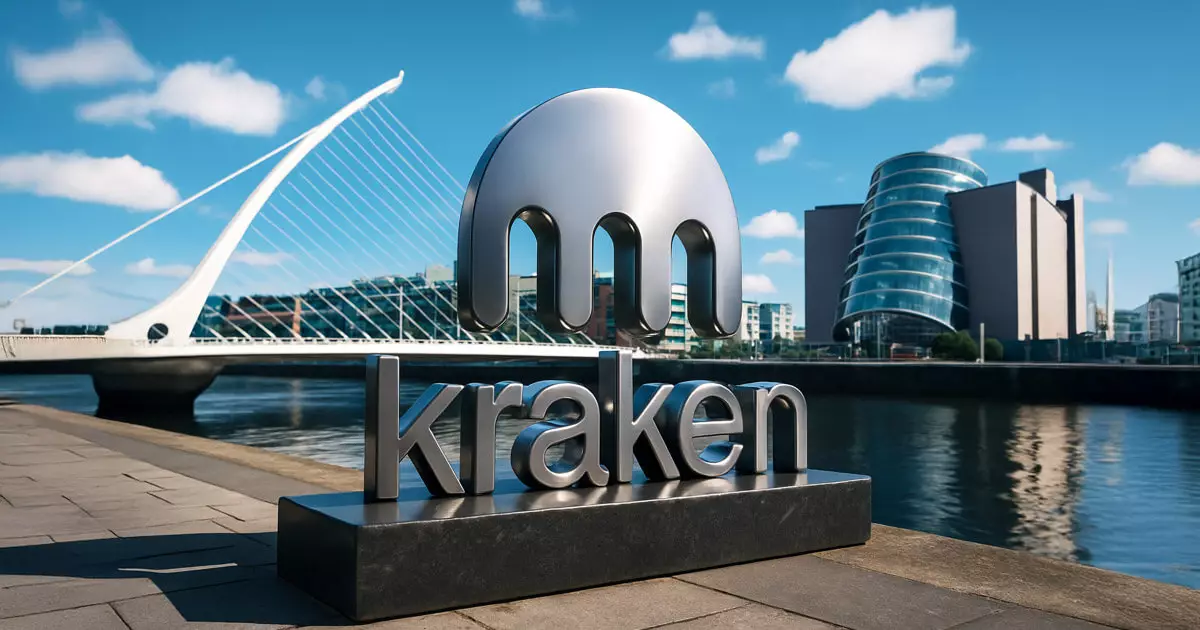In a monumental move for the cryptocurrency industry, Kraken has become the first prominent global crypto exchange to obtain a full Markets in Crypto-Assets (MiCA) license from the Central Bank of Ireland. This achievement positions Kraken as a frontrunner in a rapidly evolving regulatory landscape, granting it the ability to provide regulated digital asset services across the entire 30-member European Economic Area (EEA). This license, awarded on June 26, 2023, sheds light on the increasing demand for accountability and regulation within the crypto sector, and Kraken’s proactive approach serves as a crucial catalyst for other exchanges, urging them to follow suit before looming regulatory deadlines.
Navigating Regulatory Waters
The essence of the MiCA legislation is to harmonize the disparate regulations across member countries into a single, cohesive framework. By acquiring regulatory approval for all seven critical activities outlined under MiCA—such as custody, trading, and payments—Kraken has strategically merged its existing virtual asset service provider registrations from numerous countries into one streamlined operation. In an era where uncertainty threatens the crypto industry, Kraken’s foresight to secure a unified regulatory framework will likely translate into operational efficiency and credibility, both important for attracting institutional investors disenchanted with the chaotic landscape.
Competitive Advantages in a Crowded Market
The timing of Kraken’s license acquisition could not be more opportune. Just days before Kraken’s announcement, Coinbase also earned its MiCA license via Luxembourg, signifying a rush among U.S.-based exchanges to establish regulatory clarity in Europe. This race signifies more than just compliance; it’s a strategic maneuver to harness passporting rights, streamline onboarding, and expand market access in an environment where crypto regulations are tightening globally. With European operations already accounting for approximately 25% of its global spot volume and a staggering 35% of euro-denominated liquidity flowing through its platform, Kraken’s new license is not just a feather in its cap; it’s a potential financial boon.
Facing the Future Head-On
Yet, while indulging in this moment of triumph, Kraken must also confront the requirement for compliance with MiCA’s strict rules. The legislation is particularly rigorous when it comes to stablecoins, with non-compliance leading to severe penalties and potential business interruptions. The company’s proactive decision to remove non-MiCA-compliant stablecoins, such as Tether’s USDT, is indicative of its commitment to remaining ahead of regulatory changes rather than reacting to them. Such preemptive actions convey a message of responsibility that the crypto sector desperately needs to adopt fully.
Expanding Horizons with New Licenses
In tandem with its MiCA license, Kraken has also made significant moves to secure a Markets in Financial Instruments Directive (MiFID) license through a Cyprus-based entity. This additional license allows Kraken to delve into the derivatives market, positioning itself uniquely among exchanges that dabble in both spot and derivatives trading. With a regulatory framework in place, Kraken is not just securing its present; it is paving the way for expansive growth opportunities in a sector that has been sluggish to evolve under governmental oversight.
Challenges Ahead: Bridging Gaps in Compliance
Despite the promise of unified regulations, challenges remain aplenty. Although Kraken’s MiCA license unlocks substantial benefits, these passporting rights won’t take effect until they are registered with the European Securities and Markets Authority (ESMA). Moreover, the prospect of additional anti-money laundering checks from national regulators could introduce friction into what should ideally be a seamless operating environment. This poses a dual challenge: Kraken must navigate the regulatory maze while ensuring that its onboarding processes remain efficient, all while staying ahead of its competitors who may not be as prepared for MiCA’s high standards.
A Cautiously Optimistic Outlook
As Kraken takes bold steps into the regulated future of digital assets, its approach serves as a glaring example of what can be achieved through foresight, preparedness, and commitment to quality compliance. While some may bemoan the rigidity of regulations, a robust regulatory framework could ultimately stabilize the industry, combating fraud and building consumer trust. In a sector often criticized for its volatility and lack of oversight, Kraken’s pioneering achievements may inspire a renaissance of accountability that benefits both investors and the industry’s long-term viability. The battle for regulatory clarity is just beginning, but Kraken appears poised to come out on top.

